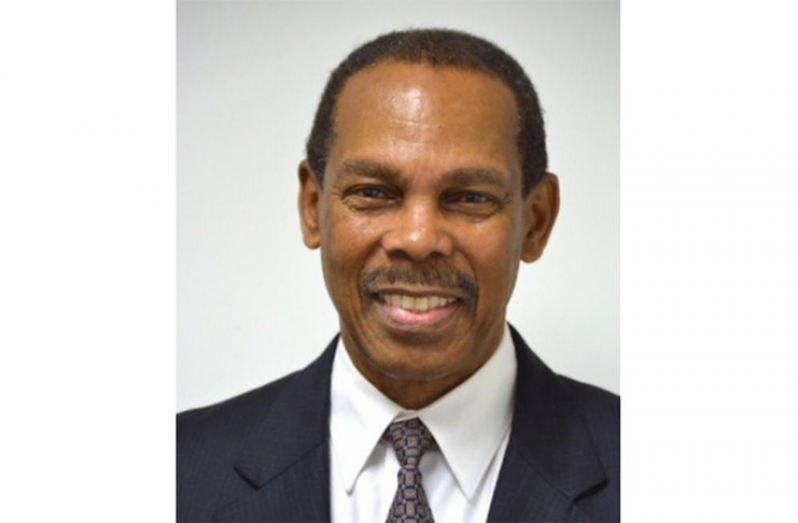— at Inaugural Campus Conversation
By Tamica Garnett
THE applicability of examinations offered by the Caribbean Examinations Council (CXC), particularly, the Caribbean Secondary Education Certificate (CSEC) examinations, to prepare individuals for the world of work and higher education, was at the centre of discussions at the Inaugural Campus Conversation held at the Cyril Potter College of Education (CPCE) on Wednesday.
The event saw Chancellor of the University of Guyana, Professor Edward Greene, delivering a presentation at the event themed: “Re-tooling, re-skilling, re-fitting, for the 21st century demands: The Education Imperative.”
Greene stressed the need for the incorporation of curriculum in the school system that digress from being largely focused on academics, and involve more practical and cultural aspects such as technical training, and teaching of the arts.
The former WHO/PAHO adviser on Health and Human Development said education must focus on skills that create the basis for students to be aware of emotional intelligence, and make assessments not only based on group learning but help them to analyse and innovate.
“It is important to investigate the systems and see how relevant those systems are to the learning systems here and the goals we are trying to achieve,” Professor Greene said.
Even as the validity of CXC subjects in preparing the students for the world of work or higher education was questioned, one student pointed out that it still remains a vital yardstick by which entry into higher education and the job market is measured.
Responding, Professor Greene said there is need for all stakeholders to get involved, including the private sector, to tackle the changing landscape of the education system.
He also urged teachers to champion the cause and push for the greater inclusion of sports and other technical aspects in the curriculum.
Given massive expected growth of Guyana’s economy, with the advent of the oil and gas industry, now, more than ever, the country’s education system must be assessed on its readiness to align the country’s human resource with its developmental needs.
“How does Guyana manage its wealth and what are the priorities, especially as it relates to this topic? It is important to prepare individuals for the changing dynamic workplace, individuals informed about the important issues and able to understand the complex world in which we live,” Greene said.
The former CARICOM deputy secretary-general questioned the relevance of the education systems not only at the CSEC and CPCE levels but even at the university which he heads.
WHY NOT CLUSTER
“Do we need 127 courses at UG to turn out capable people? Why not cluster, where we train people across business and culture combined, or agriculture and education combined. I put those models to you,” he said.
The informative discussion saw attendance of trainee teachers from the college’s Turkeyen and Vreed-en-Hoop campuses while those from the Rose Hall and New Amsterdam campuses were able to take part virtually via video conferencing.
During an interactive question and answer segment following Greene’s remarks, some of the trainee teachers shared that CSEC subjects did not sufficiently prepare them for studies at CPCE level.
To this, Greene said: “There is a discussion now which CPCE must re-examine the CXCs, as a real tool that will judge the competence of incoming students. [Is it] important for persons to get 20 ones, when the world is moving towards more clusters of education?”
CSEC is offered to fifth form secondary school students across the Caribbean where they sit any number of subjects of their choice. Top performers often write as many as 20 subjects in one year, creating conversations over the years on the relevance of so many subjects in practical life.
Entry into CPCE requires applicants to have a minimum of five CSEC subjects with grades 1 – 3, inclusive of Mathematics and English. The college offers two and one year programmes, where students can study for an Associate’s Degree in Education or a Trained Teachers Certificate.
CPCE Principal, Viola Rowe, acknowledged that some students accepted into the institution nonetheless struggle to grasp key concepts in the introductory courses.
“We have started a conversation in-house about the validity of CXC. Is it adequate? Is it really addressing the needs of the Caribbean or is it time for CXC to do some retrofitting as well,” she commented.
Rowe noted that Campus Conversation Forum came about as a result of the need to explore and raise awareness of issues in education, rooted in the desire to make the college a powerful learning institution.
“Campus Conversation 2020 reaffirms the college’s commitment to remaining relevant and current, to become more responsive to the learners, as well as the needs of our society in the interest of national development, hence, the theme. There is no better time than now, in this dawn of new era,” she said.













